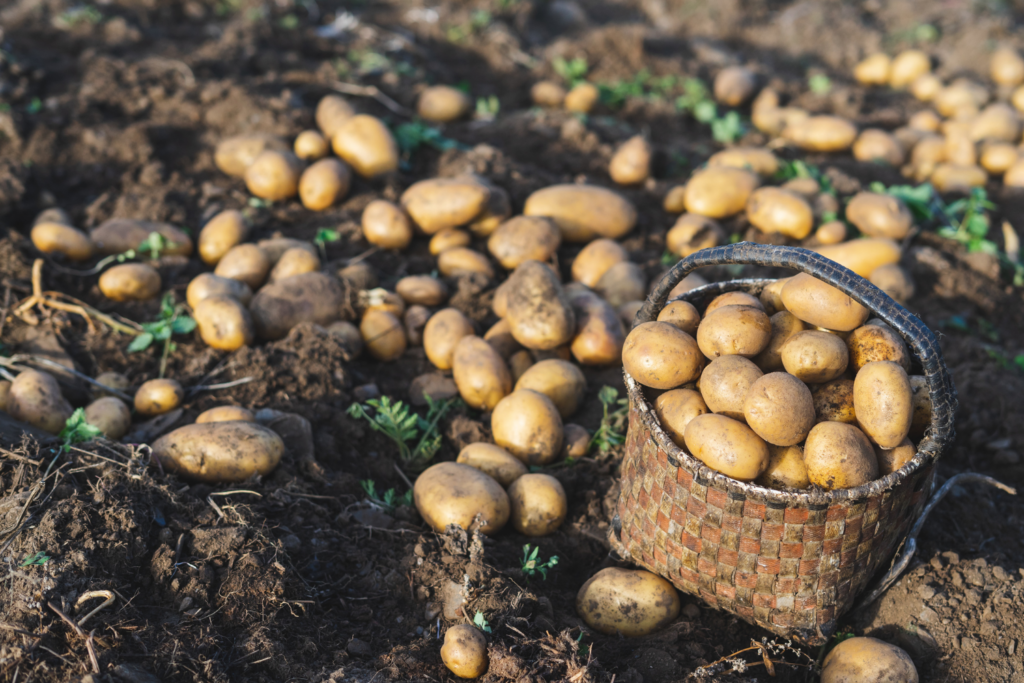Food of the Month – Potatoes

The potato is native to the Peruvian-Bolivian Andes and is one of the world’s main food crops. As the source of both feast and famine, since domestication, the potato has been a staple of human diet. A diverse vegetable that can be stewed, roasted, fried, mashed and more.
Storage Tips:
- Potatoes are best kept in cool, dry places.
- Store in a basket, bowl or paper bag rather than in plastic.
- Do not wash potatoes until you are ready to use them.
- Avoid storing near onions, bananas or apples.
- Do not store raw potatoes in the refrigerator or freezer.
Nutrition: One cooked potato (about 5 ounces) with the skin contains the following:
- 118 calories
- 27 grams of carbohydrates
- 2 grams of dietary fiber
- 1 gram of sugar
- 3 grams of protein
Contrary to popular belief, potatoes are not inherently a “bad” carbohydrate. They provide many essential nutrients like potassium, vitamin C and fiber, especially when consumed with the skin on. The preparation of the potato is most important when deciding if a potato is healthy or unhealthy. Prepared in the oven with a light seasoning of salt and avocado oil is healthier than a potato cooked in a fry basket.
Cooking: The trick to the perfect, crispy baked oven French fry is to soak, or blanch, the potatoes in cold water before baking. This helps to remove excess starch on the potato and makes the outside of the fry crispy and the inside soft. Once cut, try soaking the potatoes in cold water for 10 minutes.
Fun Facts:
- There are over 100 kinds of edible potato types.
- Potatoes are the fourth largest food crop in the world.
- Idaho is coined as the Potato State.
- In the 1890s, the Alaskan Klondike gold rush potato had a very high value due to its essential vitamin C content and was traded with gold.
FYI: Potatoes have gone bad when they are shriveled and wrinkled. However, if a potato has sprouted it is still safe to eat, just cut off the sprouts before consuming.
Published on November 13, 2023
